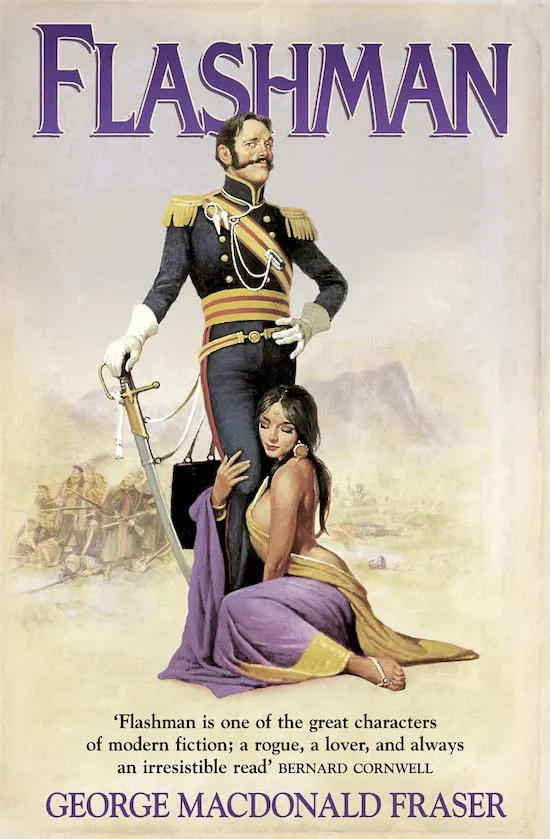Low Culture Essay: Harry Sword on The Flashman Papers
In this month's Low Culture essay, commissioned exclusively for tQ subscribers, Harry Sword makes the case for George MacDonald Fraser's Flashman series of novels being a fine lesson in the grim reality of British history, and the literary equivalents of the music of Throbbing Gristle and Iron Maiden

During a fevered bout of Covid in mid 2020 I became obsessed with Flashman and Thin Lizzy. For months afterwards I seldom read or listened to anything else. I entered a fantasy world staffed by dual sentinels: Phil Lynott and Harry ‘Flashy’ Flashman. The two became intertwined. Lynott – proud majestic Lynott – bounded through his fantasy vista of grizzled soldiers of fortune, emerald isle warriors, cowboys, New York hustlers, London junkies and casbah mystics in that soulful lackadaisical delivery; the dual leads of Brian Robertson and Scott Gorham conjuring a fantastical realm that spoke equally of 1970s backstreets and 10th century Irish hedgerow, of childlike heroism and villainy, a cinematic romanticism; a beautiful naivety.
But Flashman?
Flashman is a coward. Flashman is a sex addict and borderline alcoholic. He is an arrogant boor and snob. He is an appalling racist. He is an amoral liar, serial cheat, childhood bully and scurrilous chronicler of the worst excesses of the British Empire. He saw out the Boxer Rebellion, Charge of the Light Brigade, Battle of Little Bighorn, Siege of Cawnpore and countless other key historical events as decorated hero despite – unbeknownst to his superior officers – frequently ending up either cowering in mortal terror, beating a hasty retreat or fainting at inopportune moments.
One of literature's finest anti-heroes, he is the subject and first person narrator of George MacDonald Fraser’s Flashman Papers novels, each a maximalist bacchanalian feast of sex, violence and scrupulously annotated military history. The Flashman novels offer a form of sheer dunderheaded escapism perhaps unparalleled in 20th century literature, one particularly useful to the convalescent, the miserable or the bored. They offer this because they make scant emotional demand of the reader while presenting a world of mauve, outrageously camp adventure, deep historical wormhole and occasional Throbbing Gristle-esq descent into dank, stark horror.
To continue reading the Low Culture essay, you'll need to be a Sound & Vision or Low Culture subscriber
Find out more here (Si apre in una nuova finestra)
Sei già un affiliato? Accedi (Si apre in una nuova finestra)